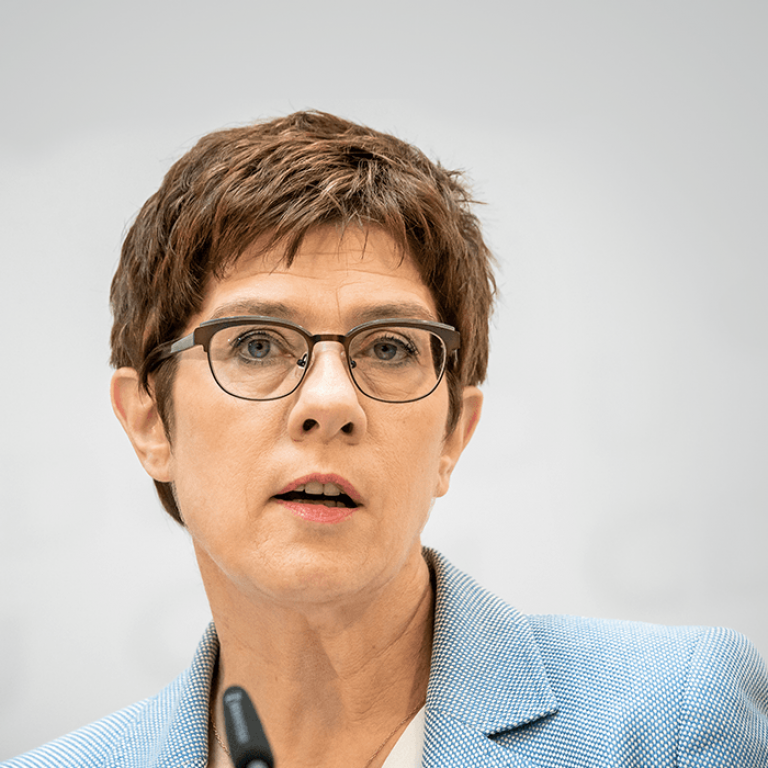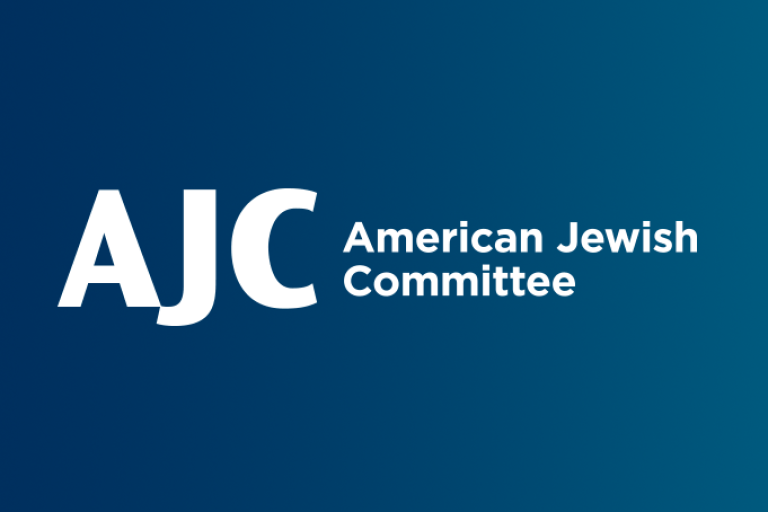June 10, 2020
Kyriakos Mitsotakis, Prime Minister of Greece, first stepped onto the AJC Global Forum stage in 2018. At that time, in Jerusalem, he pledged to strengthen Greece’s relations with Israel and combat antisemitism. After being elected as prime minister in 2019, he delivered on that promise.
Now Prime Minister Mitsotakis makes a return appearance for the premier global Jewish advocacy conference of the year, AJC Virtual Global Forum 2020.
Here are four things Jews should know about Greece’s leader ahead of his upcoming appearance.
Support for Israel Runs in the Family
At Global Forum 2018, Mitsotakis accepted an AJC award honoring his late father, Konstantinos Mitsotakis, the first Greek prime minister to establish full diplomatic ties with Israel. It was his father who, ten days after becoming prime minister in 1990, fulfilled his campaign promise to establish full diplomatic ties with Israel. At the time, Greece was the last Western European nation without such relations and one of the biggest supporters of the Palestine Liberation Organization (PLO) in Europe.
“As obvious as that decision seems now, that was far from the case 28 years ago, because Greek public opinion at the time was staunchly pro-Arab and staunchly anti-Israel,” his son said to an audience of more than more than 2,400 AJC Global Forum attendees. “Konstantinos Mitsotakis went against the tide. He did what was right and what was right for the interest of his country.”
After his momentous decision to embrace a full diplomatic relationship with Israel, the elder Mitsotakis made history again, becoming the first Greek prime minister to visit the Jewish state.
Mitsotakis, who passed away in 2017, was an architect of the strong ties that Greece and Israel enjoy today. Those strong ties are supported by numerous efforts in Greece, Israel, and the United States, including the Congressional Hellenic Israeli Alliance Caucus, which was launched at a meeting between leaders from AJC, the Hellenic American Leadership Council (HALC), and congressional leaders.
Israel is Not a Partisan Issue
Mitsotakis has met many times with Israeli Prime Minister Benjamin Netanyahu, most recently in January of this year. The two even exchanged a virtual “toast” via video conference last month to mark thirty years since the establishment of diplomatic relations between their nations. After an hour-long meeting in 2017, Mitsotakis noted that “the strategic nature of the relationship between our two states [is] supported by the majority of Greek people.”
Unlike in other European nations, Greece’s support for Israel has not become a partisan issue domestically. Just as both Mitsotakis father and son pledged to strengthen ties to Israel with support from their center-right New Democracy party, so did the immediate past prime minister, Alexis Tsipras, with support from his left-wing socialist party.
Endy Zeminides, Executive Director of HALC, said the underlying rationale is that Greece, Israel, and Cyprus—another key ally in the Eastern Mediterranean—are reliable partners for each other in the region.
“In that part of the world there is a big difference and a huge shift in geopolitical relationships depending on whether left or right got in,” Zeminides said. “In Greece, that is not going to be the case.”
Greece’s Fight Against Antisemitism and Extremism
In July 2019, Greece also bucked the nationalist trend sweeping across Europe by voting the neo-Nazi Golden Dawn party out of the nation’s parliament. The fascist party has not done well at the polls since it emerged nine years ago.
“The Greek people and Greek establishment are making an obvious stand against it,” Zemenides said. “It’s a reminder to everybody of the historic resistance of the Greeks to the Nazis and fascists. No one has ever entertained letting Golden Dawn into government.”
In 2018, Greece laid the foundation for a state-of-the-art Holocaust museum to be built in Thessaloniki. A majority of the city’s population had been Jewish before German occupation in World War II – the only city of its size in the Jewish Diaspora in which Jews made up a majority of residents. More than 85% of Greece’s Jews perished in the Holocaust.
Mitsotakis, whose late father was an active member of the resistance during the Nazi occupation of Greece, called the museum “a place where our children will be able to learn and reflect on the dangers that authoritarian regimes pose for our entire societies.”
“This is particularly important today as authoritarian and populist forces are becoming more prominent throughout Europe and around the world,” he added. “The rise of xenophobia, racism, nativism, and antisemitism is a reality in Europe today, unfortunately. It has to be confronted head-on.” Referring to his father as part of “a generation of leaders who witnessed firsthand the pain and suffering of the war,” he said that upholding their legacy is this generation’s responsibility. “We must speak the truth no matter what the consequences may be,” he said.
Those words were backed with action. In November 2019, Mitsotakis announced that Greece would adopt the International Holocaust Remembrance Alliance (IHRA) Working Definition on Antisemitism, a clear and compact description of antisemitism in its various forms, including Holocaust denial, prejudice against Jews, and the denial of Israel’s right to exist. AJC played a key role in drafting the definition fourteen years ago.
Support is a Two-Way Street
Greece and Israel have forged a strong alliance in recent years, working cooperatively and defending each other’s interests.
Greece, for example, took a strong stance against a move in the European Union to apply special labels to Israeli products produced in the settlements. When Egypt cut off gas to Israel, Greece struck a deal with the Jewish state to lay the EuroAsia Interconnector, the longest submerged power cable in the world, to link Israel to the European electric grid. The trilateral agreement between Israel, Greece, and Cyprus was the first step toward creating the Eastern Mediterranean Gas Forum.
“This was very important to Israel,” HALC’s Zeminides said. “It could’ve been isolated on the energy diplomacy front. It has helped lay the groundwork for Israel to be not only energy independent, but a strong energy exporter.”
The rupture in relations between Israel and Turkey has made the alliance with Greece even more important. Israel and Greece share intelligence and conduct cooperative military exercises. When forest fires broke out in Greece, Israel was one of the first countries to extend assistance with firefighting planes. And Greece is one of the top destinations for Israeli tourists, significantly boosting the Greek economy.
“More than 35 years ago, the hope that these nations could form such inextricable bonds was illusive,” said AJC CEO David Harris. “Now, these anchors in the turbulent Eastern Mediterranean form a strategic triangle which not only benefits the three nations, but directly benefits the United States and our considerable interests in this part of the world.”
AJC and HALC hailed bipartisan Congressional approval of the Eastern Mediterranean Security and Partnership Act, which will work to formalize America’s energy partnership with Greece, Israel, and Cyprus, three close U.S. allies that are on the frontline against Turkish anti-Western authoritarianism, Russian aggression, and terrorism spreading through the Middle East and beyond.
Harris, who meets regularly with the Greek Prime Minister and other top officials in Athens, said “Greece is one of the most pivotal nations in the world. With a long and rich history, and geographically significant, Greece today is playing a vitally important role in Europe and the Mediterranean region.”




